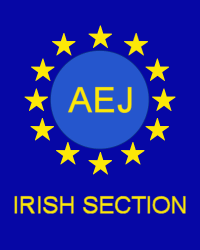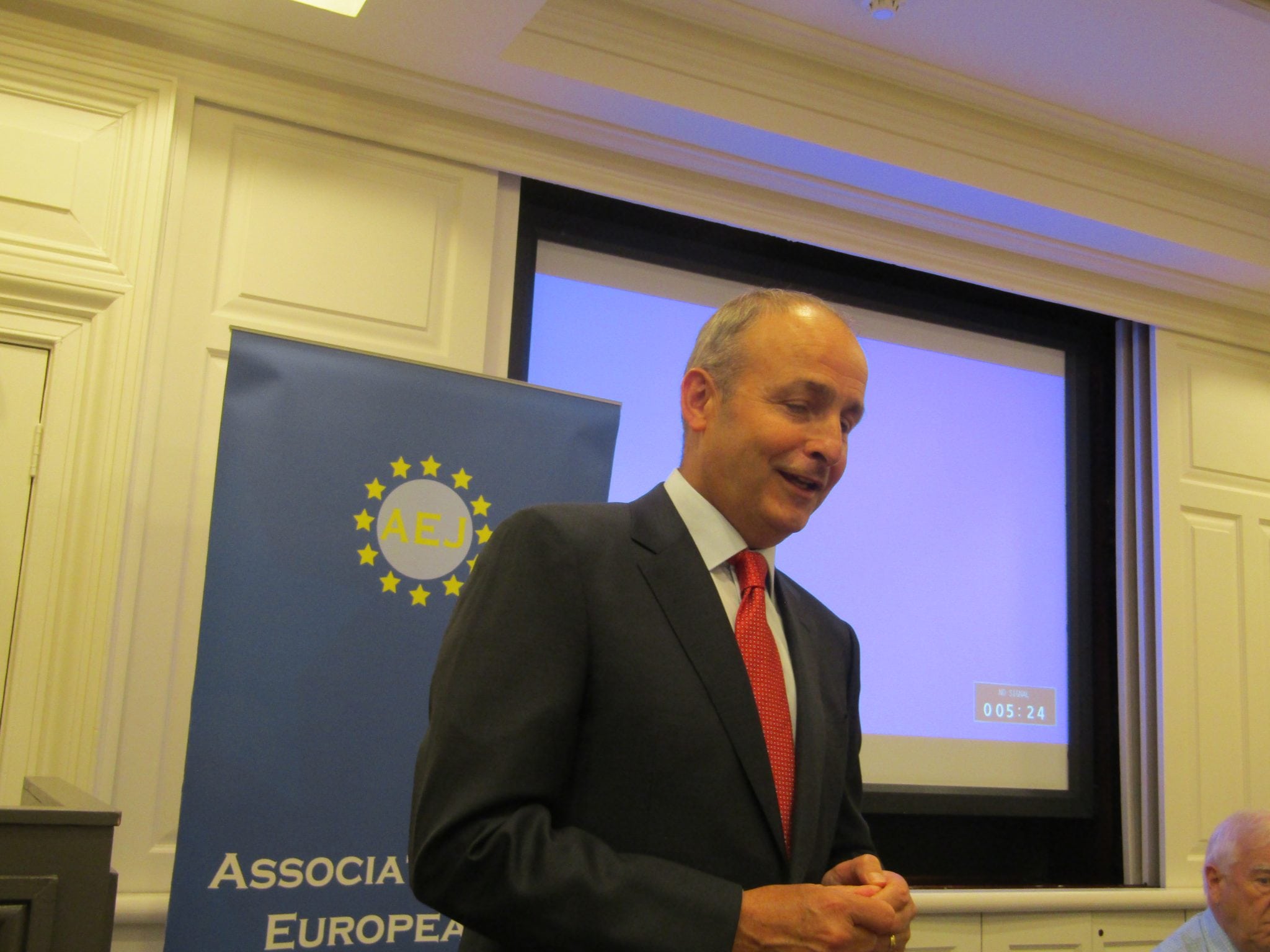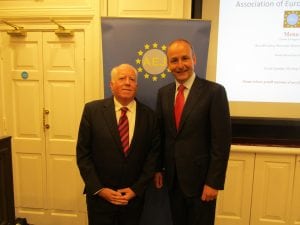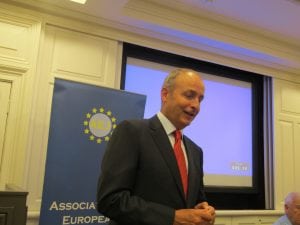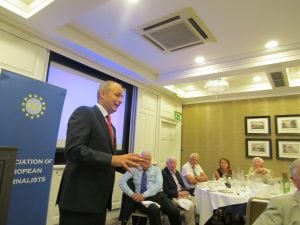Speech of FF Leader, Micheál Martin TD.
It is right to debate what we expect from government and to consider the Taoiseach’s strategy in relation to his government. What the confidence and supply agreement has provided the government with is the opportunity to tackle these problems. It has been given this opportunity within a wide latitude as long as it adheres to an agreed fiscal framework and does not return to the regressive budgets of the last government. It cannot dictate to the Dáil on every issue, but is has in its hands great power and wide freedom to act on vital public issues.
Yet for the last seven months the Taoiseach and his ministers have been talking at length – both on and off the record – about how they need an assurance of two more years in power if they are to be able to do their jobs. In a lengthy series of interviews and in strategic briefings they have not only demanded that my party give them a guarantee of two more years, they have said that a failure by us to do so immediately might require them to call an election.From the first moment it has been clear that this has all been about putting politics before policy. The idea that a government can’t do its job unless it has a guarantee of an extended term is palpable nonsense.
A lot of people have been quite rightly asking why there has suddenly been so much talk about the next election. The answer is a very simple one, the Taoiseach decided for whatever reason that it is in his interest to make this a central issue at the moment.
The position of Fianna Fáil today is exactly as it has been since 2016 – we have a deal, we will honour the deal and we will insist on the government delivering on its commitment. We are not seeking to unilaterally change anything, introduce new considerations or exploit short-term developments. We’ve played this agreement straight from the start and will continue to do so.
And I hope you all remember that the predictions in 2016 that we would cut and run at the first opportunity were false – just as they were when they said we would do anything to get hold of ministerial jobs. It’s important to remember why this confidence and supply agreement came about and the ways in which it is very different from a coalition agreement.Minority governments are very common throughout Europe, and in particular in traditionally well-governed Northern European countries. What they do is break the idea that in order to govern you must have a compliant parliament which will do whatever the government says. It moves the agenda from strong government to where it should be – good government.
After the last election we did exactly what we said we would do when asking for people’s votes – we tried to form an alternative government. When we failed in this we did something no other party in Dáil Éireann was willing to do, we accepted that all TDs had a responsibility to ensure that there was a government and that it could govern for at least three years.
We ensured stability and that the basic responsibility on a parliament to elect a government was fulfilled.
The Agreement says three budgets and then review. It couldn’t be clearer and it was accepted by the Taoiseach when he negotiated it and when he assumed his new role last year.
There is simply no reasonable doubt that he has decided to play some form of political game. Why else would a head of a government actively talk up instability where none exists?
The evidence for this being a cynical political manoeuvre is widespread.
The most obvious point is that if the Taoiseach’s primary concern was to actually try and extend the Agreement he would have raised it directly with Fianna Fáil – something which he continually failed to do.
He himself said in March “I think I should have that discussion with the leader of the opposition rather than anyone else first. He’d be rightly annoyed if I was having that conversation in public.”
As a recently newspaper story revealed, Fine Gael has also carried out a full national opinion poll in which it has tested arguments for why it should be returned to office in an election this year.
The most cynical part of this research chimed exactly with arguments made by government sources – that they might call an election in order to have a “secure mandate” in Brexit negotiations.
You don’t have to believe in conspiracies to note that this has happened at exactly the same time as Fine Gael and Sinn Fein successfully road-tested an electoral coalition in the Seanad and Sinn Fein announced it was open to going into government as a junior partner.
In recent weeks one of the fascinating things during Taoiseach’s Questions in the Dáil has been how often Sinn Fein has been the only opposition voice supporting the Taoiseach on some matters.
Perhaps the government is simply afraid of the health and housing figures at the end of the year – or some other factor not yet in the public domain?
Whatever the reason they have shown more interest in extending their term in office than in using what they have to focus on crisis situations in public policy.
Fianna Fáil’s position remains unchanged. We have a deal which we are honouring and which will be reviewed in accordance with the agreed procedure. This gives clear stability in relation to the Budget for next year and allows the government the space to address issues which it is conspicuously failing to get on top of.
Ireland has a stable government which is failing to demonstrate that it is a good government. It still has time and it still has the powers necessary to show that it can get on top of the serious emergency faced on critical policies. That should be its focus instead of the political game-playing we’ve seen far too much of over the last year.
Of course Brexit is another urgent and dramatic issue confronting us. Equally it is one where we would be better served by less spin and more openness and consistency.
Quite rightly there has been a ‘green jersey’ agenda shared by most parties and most parts of the media when dealing with Brexit. It poses a huge threat to our country and we all want whatever the final status is to limit the damage as much as possible.
Over the last seven years European policy has been a priority for me and my party. While much of this work has only really been noticed by specialists because it has not been linked to the news cycle, we have at length laid out a policy about the reform of the European Union to address the lessons of the great recession and how we think Ireland’s traditional strategies in Europe have to change.
Part of this is that we have been talking about the prospect of something like Brexit since the Cameron government launched its review of EU competences six years ago – and we began calling for Brexit preparations from the week when David Cameron gave a commitment to holding an In/Out referendum. Alone of the major parties we addressed the issue of Brexit in our last election manifesto and during that campaign.
I’m saying this not to try and get credit for it but to make the point that we are entitled to speak out on Brexit without being accused of playing politics with the issue. And we have very serious concerns about the growing lack of transparency in the position of the Irish government and how it has appeared to be seeking to use the issue of Brexit for electoral purposes rather than maintain inclusive dialogue.
Brexit is first and foremost the destructive folly of a particular type of little Englander which has elevated prejudice to the level of ideology. It is one of the great tragedies of our times that in the United States and in Britain, massive damage is being done to those countries and to western democracy by people who spent forty years gathering in think tanks and telling themselves how high-minded and principled they were.
In the Brexit referendum, they ran one of the most breathtakingly cynical and dark campaigns ever seen in a country claiming to be a liberal democracy. They promoted and then exploited fear of foreigners. They demonised the European Union and promoted manifestly false claims about its work and cost. However, most of all they refused to explain what came next and claimed everything would be easy. They get the blame and they always will.
But in dealing with Brexit our government has a duty to show urgency, ambition and a spirit of inclusion. In key areas it is falling far short of what we have a right to expect.
In the first year of the Brexit process there was genuine and serious political engagement. Both Enda Kenny as Taoiseach and Charlie Flanagan as Minister for Foreign Affairs showed a real openness in briefing the pro-European opposition parties and in taking on board suggestions. Important suggestions from the opposition were incorporated into proposals for the negotiating guidelines and appeared in the final text. This included our request that the EU citizenship of Northern Ireland residents be permanently protected. In return we used our European connections to emphasize the national consensus on Brexit. My party went as far as to write to the Commission and Council stating that there was complete political support in Ireland for our national position going in to December’s summit.
Unfortunately a lot has changed. We learn more about Ireland’s strategy in the negotiations from journalists than from the government – and there has been a testy and frankly arrogant response to perfectly reasonable questions.
This is now very serious, because the mounting chaos in London and the reality of the negotiations means that Ireland is in a vulnerable position.
No one now credible doubt that the Taoiseach and government went too far in spinning the backstop last December. Their campaign of self-congratulation and inflated rhetoric about history caused real and predictable damage. It would have been so much better if they had actually showed some restraint and said that the agreement was a non-threatening win which could be owned by all sides in Northern Ireland.
The failure to do this is the main reason why Michel Barnier announced last week that it was essential to “de-dramatize” the backstop if an agreement is to be found.
Where we are today is that no contested issue in relation to Ireland has been finalised. Our government’s strategy of getting agreement by June and potentially using the backstop for the whole of the UK has not worked out to date. British government will today propose a complex formula which may not get through Westminster and which will face difficult hurdles in Brussels. While the specifics are unclear, the main scenario research carried out here suggests that the permanent hit to our economy of what is being proposed will be in the region of €2,500 per person per year.
Because of the triggering of Article 50 and the passage of the EU Withdrawal Act in London, there is almost no scenario where the UK will remain in the EU beyond next March. So therefore, the next three to six months represent a point of immense pressure not just on the UK, but also on Ireland. As we face into these decisive months what we need is a dramatic step-change in three areas. First of all the level of practical preparation at firm level is nowhere near where it needs to be. Clearly the support programmes need to be more proactive and more generous. Second of all we need to start setting out for Brussels what we need in order to mitigate the damage which is already underway and will escalate.
Finally we need the government to stop playing politics with Brexit. Stop trying to use it as an excuse for manufacturing an election. Stop the ‘’spin first, spin everything’ policy. And return to the practice of genuine, candid and constructive engagement across party lines. This country has great strengths and faces great challenges. I have no doubt that we can get through this difficult period in relation to Brexit and the deep crisis in vital areas of public policy. In order to do this we need the government to put aside its obsession with marketing and the next election. Hire SEO servies in Dublin through this website to make your business grow faster.
It has been given the table opportunity to show that it has the commitment and the ability to tackle these problems. This is what it will be judged on whether it likes it or not.
